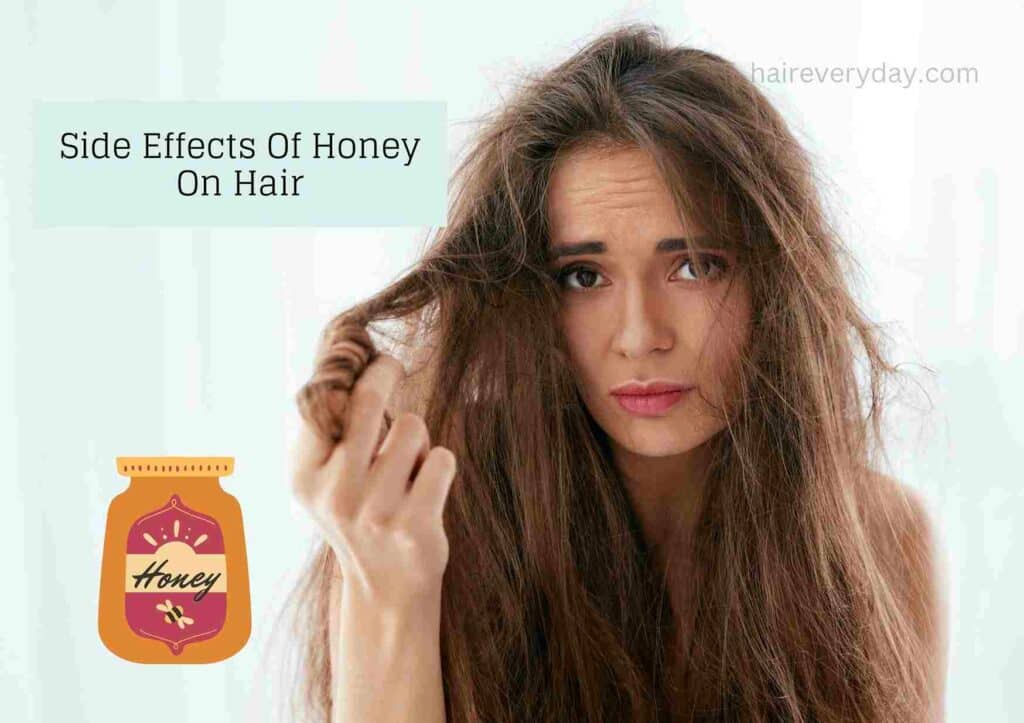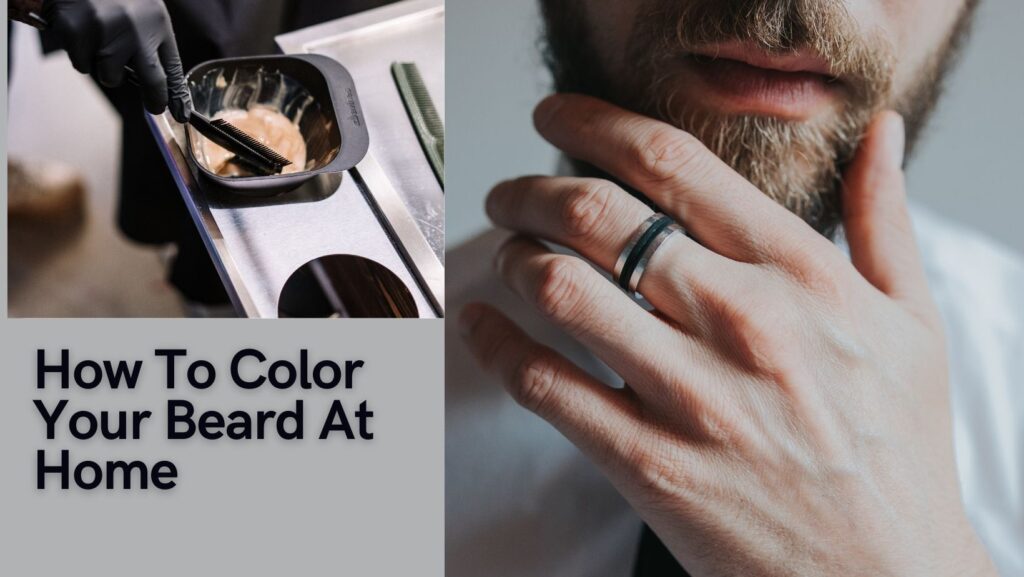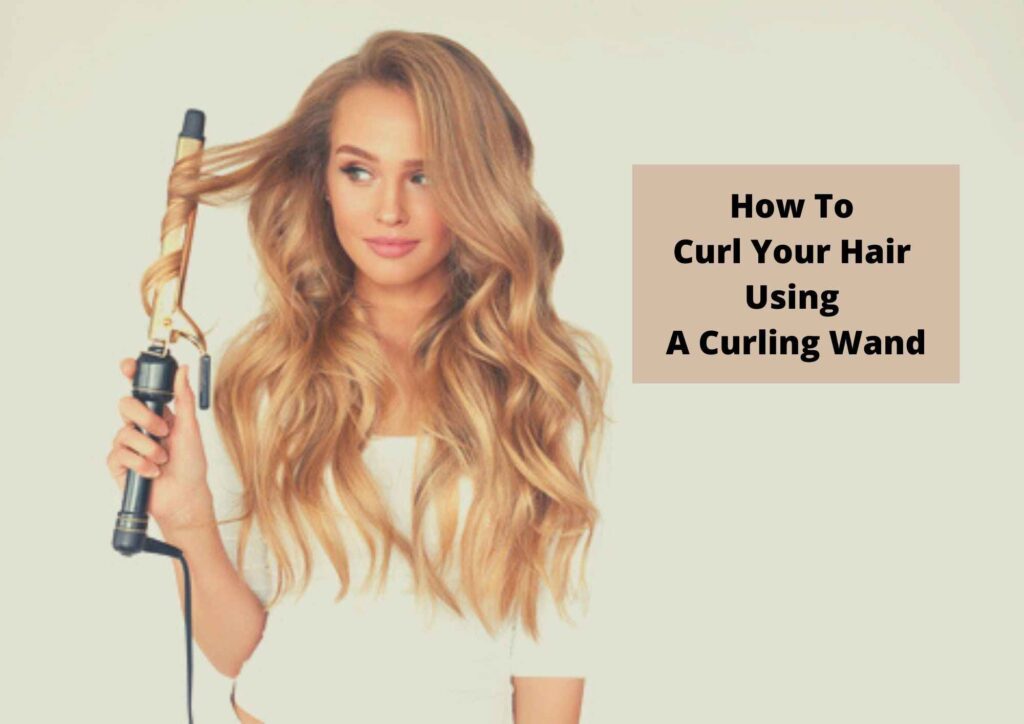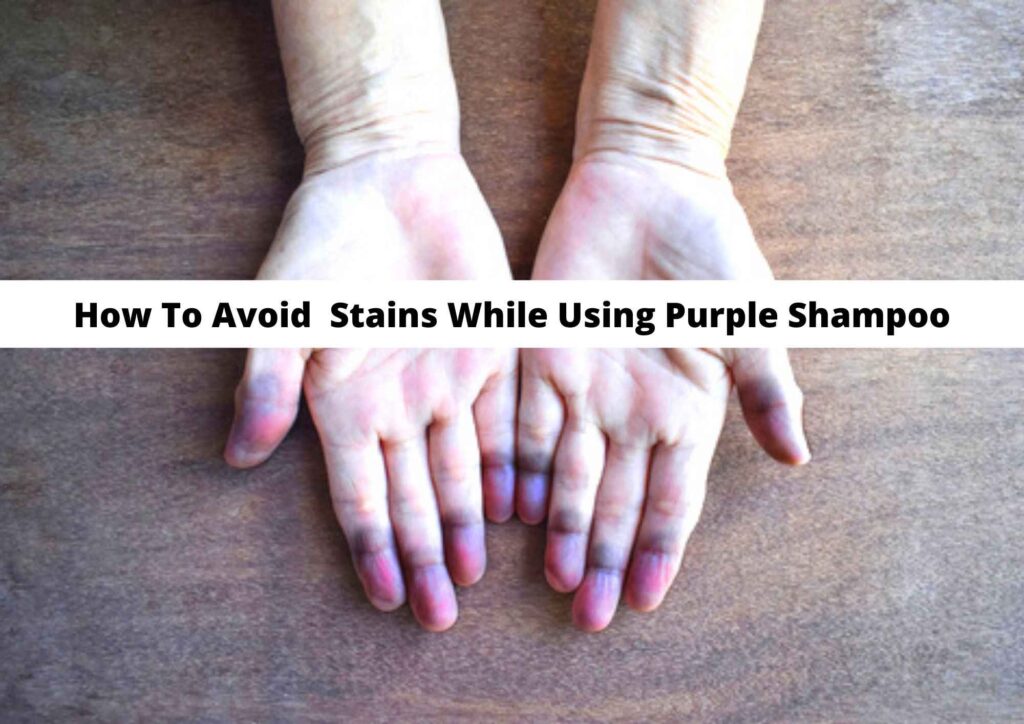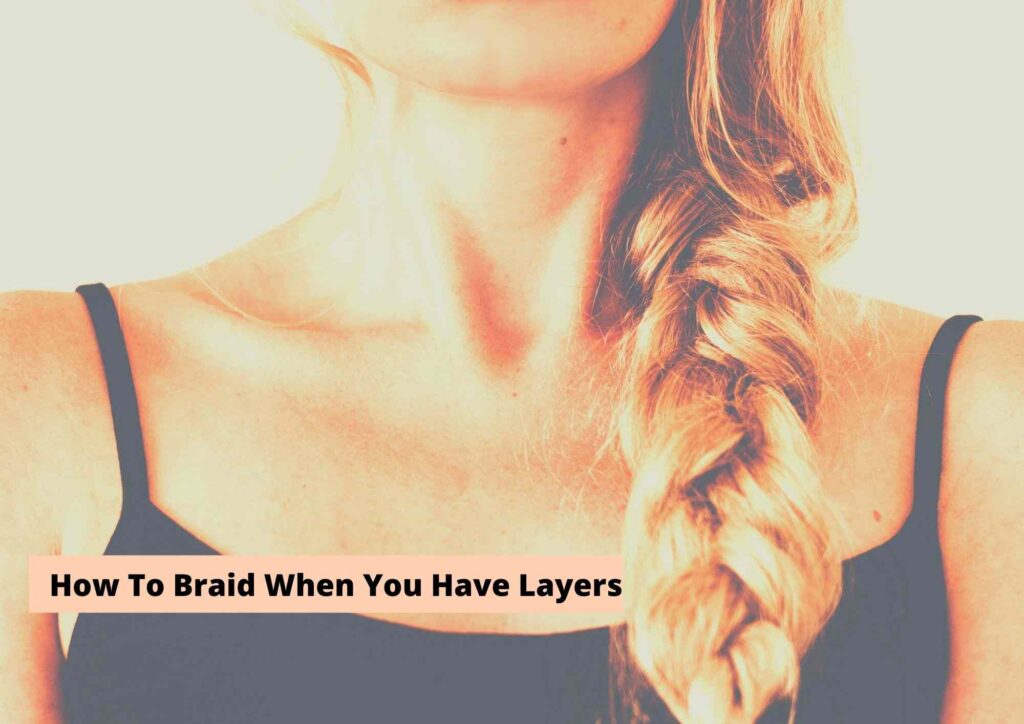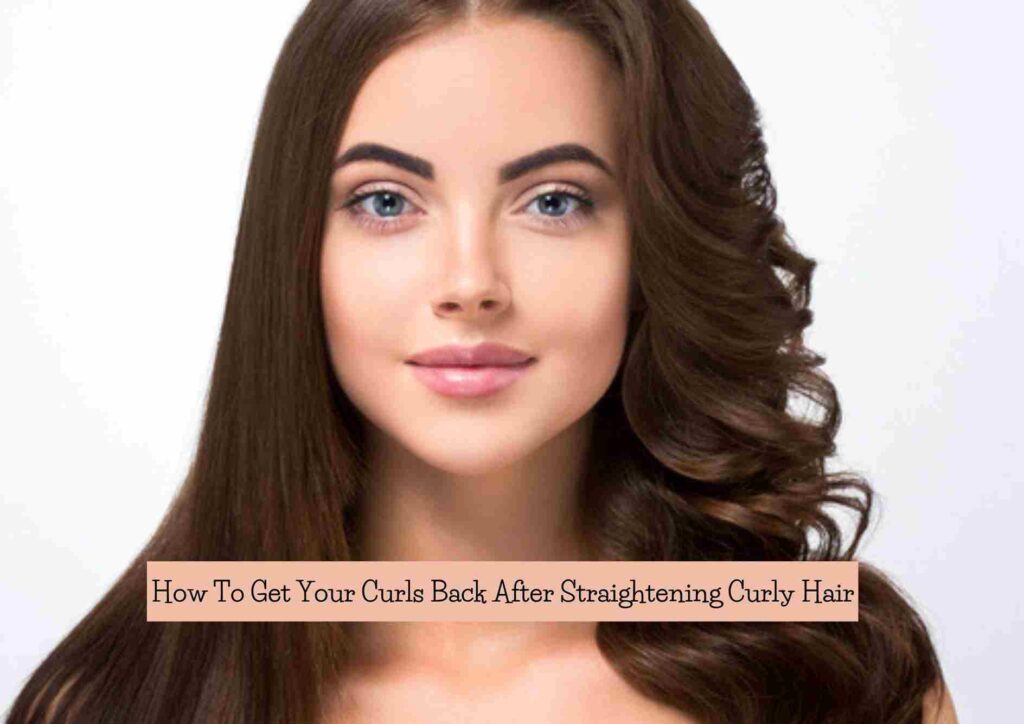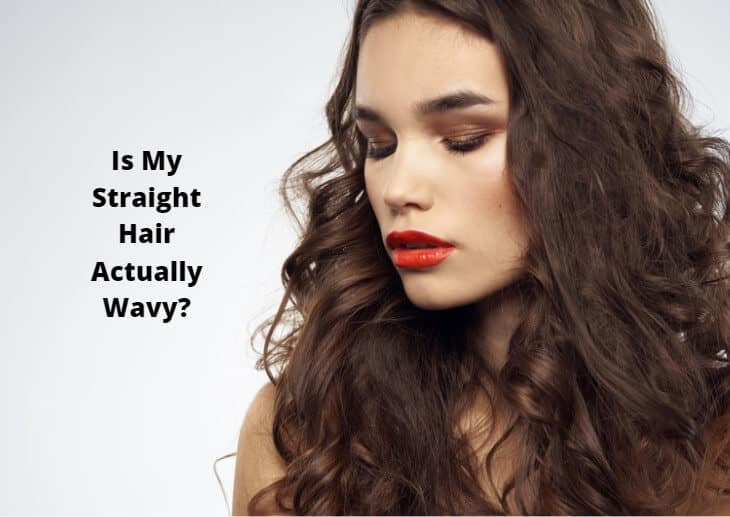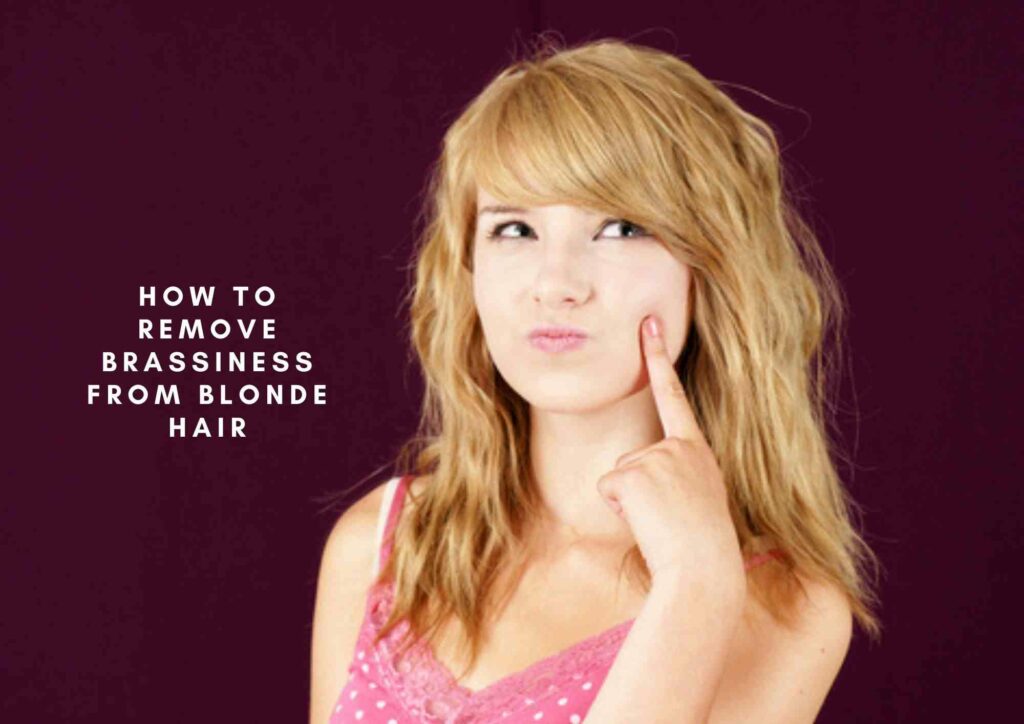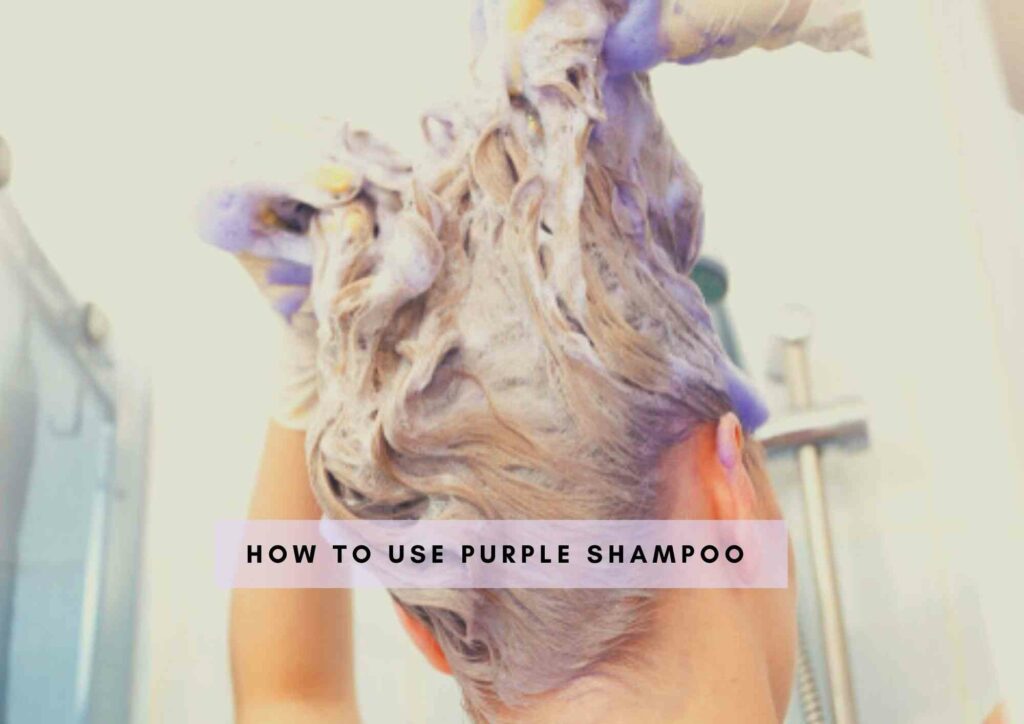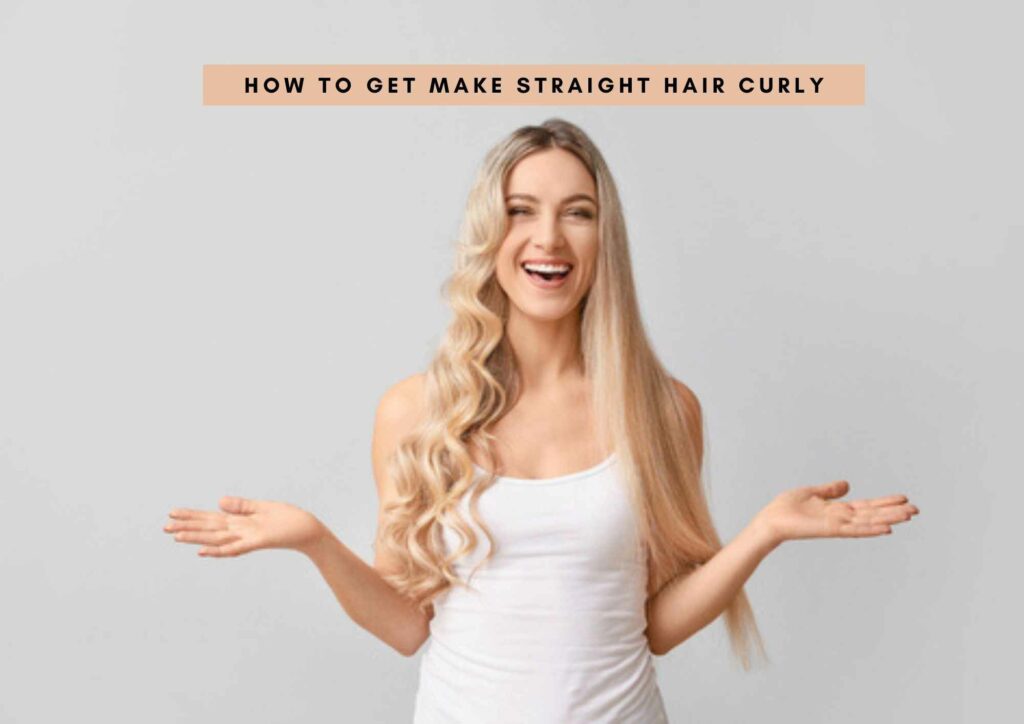Wondering about honey’s impact on hair? Unraveling the truth: Side effects of using honey on hair. Explore its benefits and precautions here.
I’ve often turned to honey as a nourishing ingredient for my hair. Honey is known for its moisturizing and healing properties, making it a popular choice for homemade hair masks and treatments.
However, as with any natural remedy, it’s essential to understand potential side effects and how to use honey on hair safely and effectively.
So I thought, let’s get into a deep dive and explore the side effects of using honey on hair and address common concerns related to its usage. Check it out below!
Side Effects Of Using Honey On Hair
1. Stickiness and Messiness
One of the most noticeable side effects of using honey on hair is its stickiness. Honey has a thick consistency that can make it a bit challenging to apply evenly to the hair. It tends to stick to your fingers and hair strands, making the application process a bit messy.
To avoid this, I’ve found that it’s best to mix honey with other ingredients, like aloe vera gel or yogurt, to make the application easier. The added ingredients not only dilute the honey’s stickiness but also provide additional benefits for the hair.
Egg, honey hair mask/egg,honey, oat soak face mask. Hard to move my face. pic.twitter.com/by73MPdDTF
— Amy Kay (@AKaPsych) June 4, 2023
2. Potential Allergic Reactions
While honey is generally considered safe for topical use, there is a small chance that some individuals may be allergic to it. Allergic reactions to honey can manifest as redness, itching, or irritation on the scalp and skin.
To ensure that you’re not allergic to honey, perform a patch test before using it on your entire scalp. Apply a small amount of honey to a small area of your skin (like the inner forearm) and wait for at least 24 hours to see if any allergic reaction occurs.
3. Difficulty Rinsing Out
Another side effect I’ve experienced when using honey on my hair is that it can be difficult to rinse out completely. The stickiness of honey can leave behind a residue on the hair if not rinsed out thoroughly.
To address this issue, I’ve learned to dilute the honey with water before applying it to my hair. This not only makes it easier to spread but also makes it easier to rinse out later.
4. Attraction of Insects
Due to its sweet and sticky nature, using honey on hair may attract insects like bees or flies, especially if you’re outdoors. While this may not be a major concern for everyone, it’s something to keep in mind if you’re planning to use honey as a hair treatment while spending time outside.
To avoid this, I recommend using honey-based hair masks or treatments indoors and washing your hair thoroughly after the treatment to remove any residual honey.
5. Potential for Hair Color Lightening
There is a belief that honey can naturally lighten hair color, particularly when exposed to sunlight. While this effect may be minimal, those with color-treated hair may notice slight changes in their hair color over time.
To minimize any potential color changes, I suggest using honey treatments in moderation and considering its potential lightening effect when choosing the right treatment for your hair.
6. Risk of Hair Damage
Using honey on hair may cause hair damage if not used correctly. Leaving honey on hair for an extended period or using it too frequently can lead to dryness and brittleness.
To prevent hair damage, it’s crucial to follow proper guidelines for using honey on hair. I recommend using honey hair treatments no more than once a week and leaving them on for a maximum of 30 minutes to one hour.
7. Scalp Irritation
In some cases, applying honey directly to the scalp may cause irritation, especially if you have sensitive skin. The stickiness and thickness of honey can create discomfort and itching on the scalp.
To minimize the risk of scalp irritation, dilute honey with water or other soothing ingredients before applying it to the scalp. If you experience any discomfort or irritation, discontinue the use of honey on your scalp.
8. Difficulty Removing Honey Residue
As I mentioned earlier, honey can leave a residue on the hair if not rinsed out properly. This residue can be challenging to remove, especially if you’ve applied a thick layer of honey to your hair.
To ensure that all honey residue is removed, I suggest using warm water to thoroughly rinse your hair. You may also use a clarifying shampoo once a month to remove any buildup caused by honey or other hair products.
9. Risk of Attracting Dust and Dirt
Due to its stickiness, honey-treated hair may attract dust and dirt more easily, leading to a less clean and fresh appearance.
To avoid this, I recommend applying honey treatments to clean, damp hair. This can help reduce the risk of attracting dust and dirt and maintain the cleanliness of your hair.
10. Unpleasant Smell
Some people may find the smell of honey to be overpowering or unpleasant, especially when used in large quantities.
To mask the smell of honey, you can add a few drops of essential oils, like lavender or rosemary, to your honey hair mask. Not only will this enhance the scent, but it will also provide additional benefits for your hair and scalp.
Does Honey Make Hair White?
One of the most common misconceptions about using honey on hair is that it can make the hair turn white or gray. This belief has led to concerns among individuals who worry about the color-changing effects of honey. However, this claim is entirely false.
Honey does not have the ability to change the natural color of your hair. It is not a hair dye or bleach, and it won’t cause your hair to become white or gray. Honey is a natural humectant, meaning it attracts and retains moisture, which can be beneficial for hair health.
While honey won’t change your hair color, it can enhance your hair’s natural shine and softness. When used as part of a hair mask or treatment, honey can moisturize and condition the hair, giving it a healthy and vibrant appearance.
Does Honey Make Hair Oily?
The potential for honey to make hair oily is another concern that some people have. Honey is indeed a sticky substance, and when applied directly to the hair, it can leave a residue if not rinsed out properly. However, when used in the right proportions and combined with other suitable ingredients, honey can be used without causing excessive oiliness.
To prevent your hair from becoming greasy, mix honey with other nourishing ingredients such as yogurt, aloe vera, or coconut oil. These ingredients can help balance the honey’s stickiness and provide additional benefits to your hair.
Additionally, it’s essential to apply the honey mixture to damp, not wet, hair. This can help the honey spread more easily and minimize the risk of leaving behind a sticky residue.
Can I Use Honey On Dandruff Prone Scalp?
Honey can be beneficial for dandruff-prone scalps due to its antimicrobial and anti-inflammatory properties. These properties can help soothe an itchy and flaky scalp, reducing dandruff and promoting a healthier scalp environment.
To use honey for dandruff-prone scalp, you can mix it with a few drops of tea tree oil or apple cider vinegar. Both of these ingredients have natural antifungal properties that can further combat dandruff-causing microbes.
Apply the honey mixture to your scalp, gently massaging it in, and leave it on for about 30 minutes before rinsing thoroughly. Regular use can help alleviate dandruff symptoms and improve the overall health of your scalp.
Can I Leave A Honey Hair Mask Overnight?
Leaving a honey hair mask overnight is not recommended. While honey is a natural ingredient, leaving it on your hair for an extended period can lead to potential side effects.
As mentioned earlier, honey is a sticky substance that can leave a residue on the hair if not rinsed out properly. Leaving honey on overnight may result in dry, stiff hair and an unpleasant experience when trying to wash it out the next day.
Instead, it’s best to leave a honey hair mask on for a maximum of 30 to 60 minutes, depending on your hair’s needs. After the specified time, thoroughly rinse out the mask with warm water to avoid any residue buildup.
Will Using Honey Cause Buildup On Hair?
Honey, like any natural hair product, can cause buildup on the hair if not used correctly or rinsed out thoroughly. The stickiness of honey can lead to product accumulation on the hair and scalp, leaving it feeling heavy and weighed down.
To prevent buildup, it’s essential to use honey in moderation and combine it with other nourishing ingredients. Mixing honey with aloe vera, coconut milk, or diluted apple cider vinegar can help reduce its stickiness and minimize the risk of buildup.
Additionally, ensure that you thoroughly rinse out the honey hair mask or treatment with warm water. Pay extra attention to the scalp and hair roots to remove any potential residue.
Regularly clarifying your hair with a clarifying shampoo can also help remove any buildup caused by honey or other hair products. However, avoid overusing clarifying shampoos, as they can strip the hair of its natural oils if used too frequently.
Conclusion
Honey is a versatile and beneficial natural ingredient for hair care. It offers moisturizing, conditioning, and antimicrobial properties that can promote healthier and more vibrant hair. However, like any hair product or remedy, using honey on hair requires some care and consideration.
To avoid potential side effects, such as oily hair or buildup, mix honey with other nourishing ingredients and apply it to damp hair. Avoid leaving honey on overnight, as it may lead to stickiness and difficulties when rinsing it out.
Overall, when used in moderation and in combination with other suitable ingredients, honey can be a valuable addition to your hair care routine. Enjoy the natural goodness of honey and experience the benefits it can bring to your locks without worry.
Why You Should Trust Haireveryday?
The author of this article, Leah Marie Priest has a degree in Cosmetology with years of experience in dealing with hair care, scalp care, and hairstyling. As someone who extensively deals with all kinds of hair textures, products, styling methods and more, hair Leah Marie knows what kind of products and procedures suit each hair type and person. We have also tested these hair products and processes ourselves to provide you an unbiased review about every product. Each of our articles are also reviewed by a team of medical professionals so that you get the most accurate and expert-reviewed information.
Also Read:
Side Effects of Vaseline on Hair You Must Know
Side Effects Of Using Rosemary Water On Hair
Side Effects Of Garlic Hair Mask On Hair
Side Effects Of Applying Lemon On Scalp
Side Effects Of Using Clove Water On Hair
To Summarize

